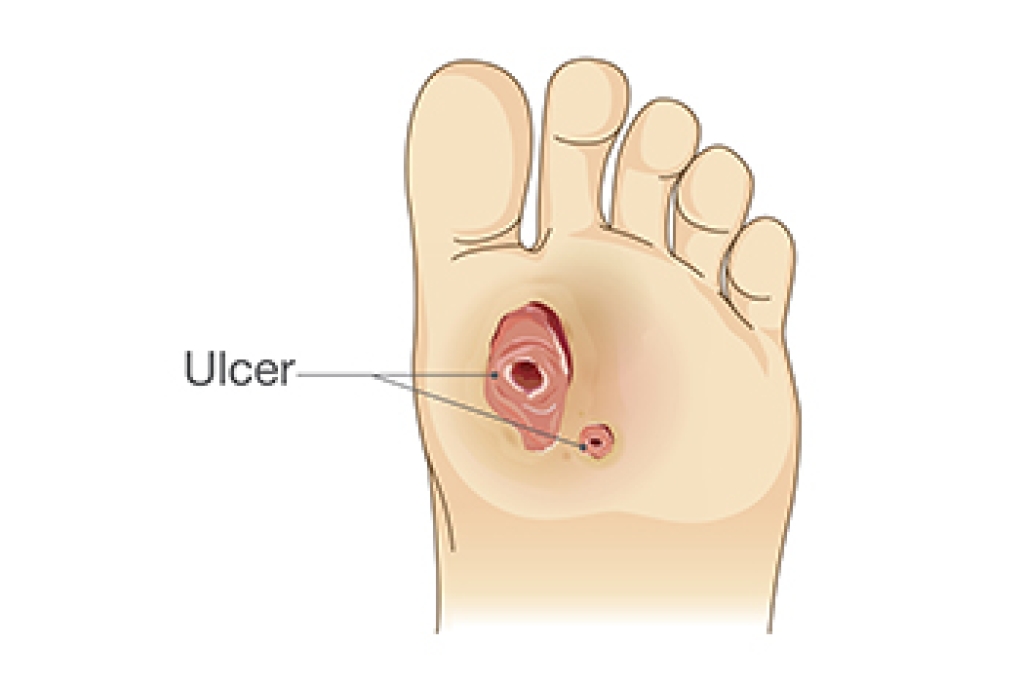
Foot ulcers are open sores or wounds that typically develop on the bottom of the foot and can result from poor circulation or prolonged pressure. They are often linked to conditions like peripheral neuropathy, arthritis, and Raynaud's phenomenon. Peripheral neuropathy reduces sensation in the feet, making it difficult to detect injuries, while poor circulation from conditions like Raynaud's delays healing. Arthritis can increase the risk of pressure ulcers by altering foot mechanics. If untreated, foot ulcers can lead to severe infections, including gangrene, possibly resulting in amputation. Symptoms include swelling, redness, drainage, and pain surrounding the wound. Diagnosis involves physical examination and tests to assess circulation and nerve function. Treatment includes wound care, offloading pressure, managing underlying conditions, and sometimes surgery. Healing time varies, from weeks to months, depending on the ulcer's severity and the patient's overall health. If you have developed a foot ulcer, it is strongly suggested that you schedule an appointment with a podiatrist for treatment.
Wound care is an important part in dealing with diabetes. If you have diabetes and a foot wound or would like more information about wound care for diabetics, consult with one of our podiatrists from Advanced Foot Specialists. Our doctors will assess your condition and provide you with quality foot and ankle treatment.
What Is Wound Care?
Wound care is the practice of taking proper care of a wound. This can range from the smallest to the largest of wounds. While everyone can benefit from proper wound care, it is much more important for diabetics. Diabetics often suffer from poor blood circulation which causes wounds to heal much slower than they would in a non-diabetic.
What Is the Importance of Wound Care?
While it may not seem apparent with small ulcers on the foot, for diabetics, any size ulcer can become infected. Diabetics often also suffer from neuropathy, or nerve loss. This means they might not even feel when they have an ulcer on their foot. If the wound becomes severely infected, amputation may be necessary. Therefore, it is of the upmost importance to properly care for any and all foot wounds.
How to Care for Wounds
The best way to care for foot wounds is to prevent them. For diabetics, this means daily inspections of the feet for any signs of abnormalities or ulcers. It is also recommended to see a podiatrist several times a year for a foot inspection. If you do have an ulcer, run the wound under water to clear dirt from the wound; then apply antibiotic ointment to the wound and cover with a bandage. Bandages should be changed daily and keeping pressure off the wound is smart. It is advised to see a podiatrist, who can keep an eye on it.
If you have any questions please contact our offices located in Rockwall, Greenville, Dallas, Sachse, and Lewisville, TX . We offer the newest diagnostic and treatment technologies for all your foot and ankle needs.
